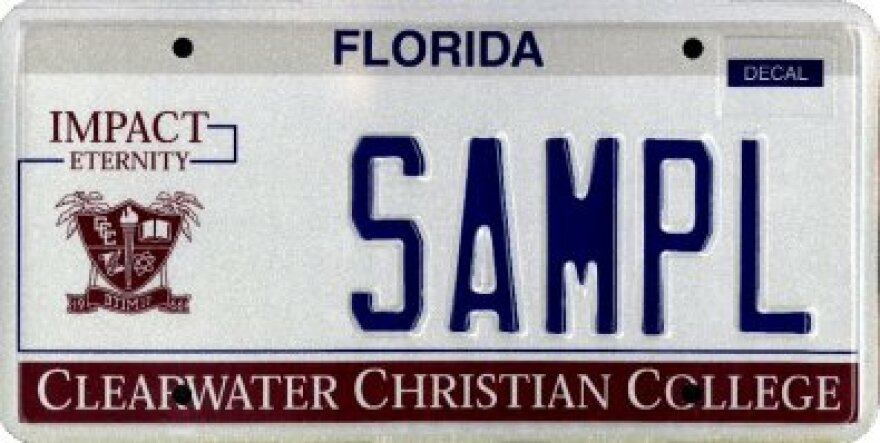For a legislator, it’s a chance to help a worthy cause or send a message to the political base. But specialty license plates are flooding the market and Senate Republicans want to put on the brakes.
To understand just how addicted lawmakers are to creating specialty license plates, consider Thursday’s Senate Transportation Committee meeting. Here’s what happened when Chairman Jeff Brandes, a St. Petersburg Republican, took up a bill that could eventually pull half of the specialty tags off the market.
“The first amendment is by Senator Thompson, bar code 848322. Thank you Mr. Chairman. This amendment creates a specialty license plate for my sorority…”
That was Senator Geraldine Thompson, a Democrat from Orlando.
“We’re going to move on to amendment No. 2 by Senator Bullard, 471746. Senator Bullard, you’re recognized on the amendment. Thank you chair. This amendment establishes the creation of the ‘Furry Friends’ license plate.”
That was Senator Dwight Bullard, a Democrat from Miami. And here he is again.
“We are on amendment number three, 702050, by Senator Bullard. Senator Bullard, you are recognized. Thank you Chair Brandes, this amendment establishes the creation of the ‘Save Our Shores,’ license plate.”
And so on, and so on. When it passed unanimously, the specialty tag crackdown bill created 16 new ones.
Brandes can hardly hide his frustration.
“One of the concerns is that these license plates are starting to, becoming, a side show and so we have to get this under control.”
No ordinary law will do. The Legislature passed a specialty tag moratorium eight years ago. Determined legislators got around it by writing the phrase “notwithstanding” in their plate legislation. Republican Sen. Greg Evers of Baker had to do it to file his “In God We Trust,” license plate.
The proceeds will go to help veterans.
“I sponsored some specialty license plates today and I feel that like in certain circumstances, it allows for people to purchase these plates to go for a good cause.”
Sponsoring and passing a bill doesn’t mean a plate goes into production. The non-profit organization receiving the money has to first sell, or get pledges, for 1,000 plates before the presses roll.
Brandes’ bill raises the bar to 4,000 plates. And by the summer of 2020, any plate that has sales of less than 4,000 for 12 consecutive months dies.
“We’ve got some universities, some license plates out there, with less than 100 plates sold. I don’t think we should operate a state program with less than 100 plates sold.”
The Department of Highway Safety and Motor Vehicle is currently tracking sales for 122 specialty plates. And those figures suggest 53 of them could be doomed. The University of Florida tag led the pack last year with 88,805 tags sold. Clearwater Christian College brought up the rear with just 51.
Hovering near Brandes’ suggested cutoff point is the Florida Sheriff’s Youth Ranches. The iconic charity sold 3,733 plates last year. Maria Knapp, vice president for donor relations, plans to ramp up marketing efforts.
“We understand some of the positions that are out there about handling them and having so many around the state, but we hope that we can keep this and maintain this for our organization.”
Lauren’s Kids, which campaigns for child abuse awareness and prevention, is just completing the first year of sales for its plate. It’s president is Ron Book, a veteran Capitol lobbyist. Book’s not worried about meeting the new thresholds.
“We are on target, like I said, having sold almost 2,700 plates to date in the first 12 months the plate’s been in existence.”
If current sales hold, 2020 is going to be a disappointing year for a lot of Florida charities that get money from plates. And that includes the Boy Scouts, Special Olympics, the Fraternal Order of Police, and Florida Panthers, to name a few.


